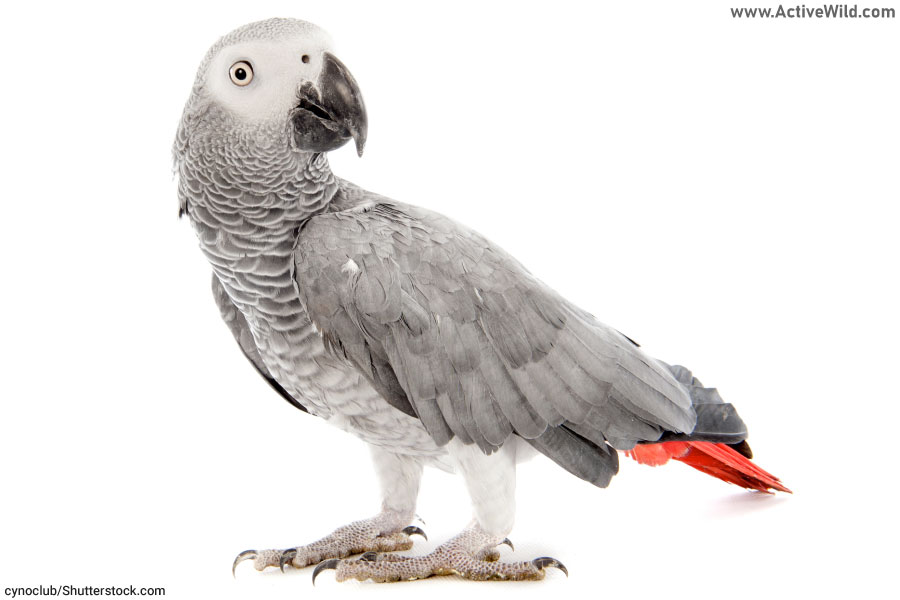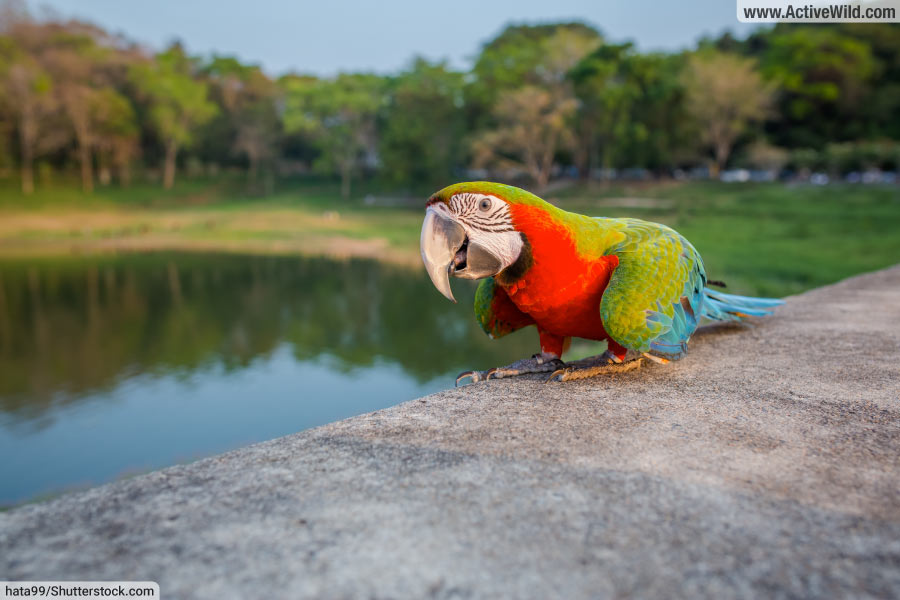A new study has found that parrots can benefit from making video calls to one another. In the three-month study, the birds were able to initiate calls and select which of their friends they could chat to.
The research may solve problems of pet parrots showing signs of loneliness and boredom.
Lonely Parrots
They’re among the world’s most popular pets, but there is concern that parrots, which are among the most intelligent of all animals, suffer boredom as a result of being kept alone.
Lonely or otherwise unstimulated parrots are prone to exhibiting stereotypical behaviors such as making excessive noise, furniture damage, possessiveness to one human, self-mutilation and feather picking.

Help may be on hand for these naturally social animals, as a recent study has found that parrots appear to benefit from making video calls to one another using their owners’ tablets.
Researchers from the University of Glasgow found that the birds, under the supervision of their owners, would initiate video calls, choose which of their “friends” they wanted to speak to, and exhibit signs of enjoying “chatting” with their online friends.
Parrot Video Call Study
The three-month study involved 18 parrots of various species. (Parrots involved in the study included African greys, macaws, quackers (monk parakeets), cockatiels, a conure, parotlet and caique.)

During a two-week “Phase 1”, the birds were taught how the system worked: after ringing a bell, they would be presented with a tablet showing images of the parrots in their group. Pecking on a parrot’s image would start a video call with that bird.
During this phase, the parrots were rewarded for correctly initiating a video call to their desired parrot.
Once the birds (and their carers) were comfortable with the system, there then followed a 10-week “Phase 2”, in which the parrots were allowed to make calls to one another.
During the course of the experiment, the parrots made a total of 147 video calls. Researchers found that the more calls a parrot made, the more it was likely to be called by other parrots, and the longer its calls would last.
During the calls, the parrots would exhibit social mirroring behavior such as preening, singing and playing. The parrots’ owners also reported higher levels of bonding with the animals, as they learned more about their birds’ abilities and personalities.

Ethical Guidelines
Central to the study was the bird’s welfare. Calls were limited to two per session, and were not allowed to last any longer than five minutes. Calls were ended early if the birds showed disengagement or signs of distress.
Due to differences between human and bird vision, there were concerns that the parrots would be unable to make sense of the images on a tablet – birds can see ultraviolet light beyond the range produced by a tablet, and in addition, may not see constantly-flickering images at the rate produced by a tablet as a seamless, moving pictures as we do.
However, evidence from previous studies, and the reactions of parrots in this experiment, suggests that, despite the shortcomings of using screens designed for human use, the parrots appeared to understand the images on the screen.
A Brighter Future For Pet Parrots?
Research such as that carried out by the University of Glasgow may provide the foundations for products and services aimed at improving the wellbeing of pet parrots.
It has long been known that these intelligent and naturally social birds can suffer if not provided with sufficient stimulation.
With millions of parrots being kept as pets, a potential “parrot social networking service” could prove to be not only highly beneficial for the birds, but also highly lucrative for an enterprising human!
Parrots

Parrots are birds belonging to the order Psittaciformes. This diverse group comprises around 400 species, including parakeets, macaws and cockatoos.
Parrots are characterized by their curved beaks, zygodactyl feet (two toes facing forward and two facing backward), noisy vocalizations, and high intelligence.
Native to tropical and subtropical regions, parrots can be found in Central and South America, Africa, Asia, and Australia, where they inhabit a range of environments from rainforests to grasslands.
Parrots are among the most intelligent of all animals. Species of parrot have demonstrated an ability to understand the meaning of words, solve puzzles, and use tools.
Parrots As Pets
Parrots are a popular choice of pet, with an estimated 40 million parrots being kept in homes worldwide. These intelligent, social, and colorful birds have captivated pet owners for centuries.
Among the diverse parrot species commonly kept as pets are the African Grey, which is renowned for its remarkable cognitive abilities, the vibrant and playful Sun Conure, and the friendly and talkative Amazon parrots.
Smaller species, like the Budgerigar and the Cockatiel, are also well-loved for their manageable size and captivating personalities.
Potential owners should note that parrots can live for several decades, depending on the species, and require a high level of mental stimulation.
Sterotypical Parrot Behavior
Sadly, parrots kept as pets may begin to exhibit various harmful or distracting stereotypical behaviors, including vocalizations, chewing, and forming strong bonds with their human caregivers. These natural instincts can sometimes lead to excessive noise, furniture damage, or possessiveness. Additionally, parrots may engage in self-mutilation or feather picking, often as a result of stress, boredom, or underlying health issues.
To promote a healthy relationship, owners should understand these behaviors, provide an enriching environment, and ensure proper social interaction and training for their parrot companions.
Discover More With Active Wild
Are Birds Mammals? Find Out In Our Definitive Guide!
Different Types Of Birds: List With Pictures & Interesting Facts

